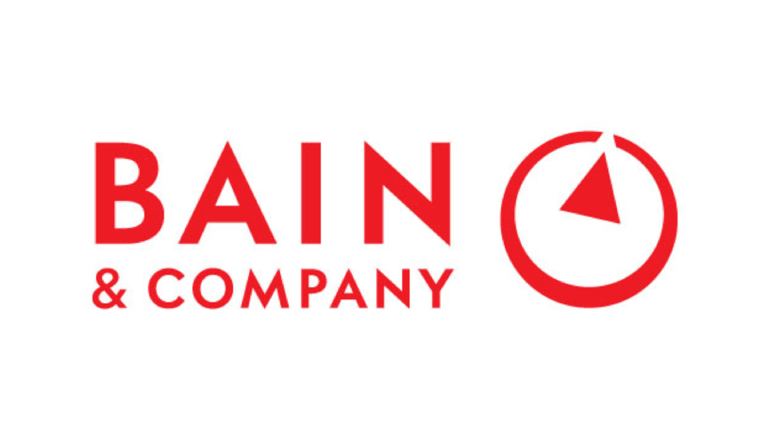If we were to list the value chain of any large Indian corporation or the India office of an MNC, the micro, small, and mid-size enterprises (MSME) would comprise more than 80 percent.
As more and more organizations prepare themselves and their teams to adhere to various ESG statutes and sustainability compliances in 2024, they must also involve their MSME partners in their green endeavors.
The right time:
India has set the target to achieve net zero emissions by 2070. Furthermore, the Indian government launched the “LiFE” (Lifestyle for Environment) campaign, realizing that achieving a sustainable future requires the participation of citizens. The UN recently commended the G20 Presidency of India for emphasizing sustainability goals.
Businesses are held accountable by the 193 UN member states to achieve sustainable development. However, since MSMEs are essential to business value chains, large corporations can only meet their ESG targets if they assist MSMEs in implementing sustainable business practices.
The reason is twofold:
1. Climate change and resultant disasters impact everyone equally. It is therefore crucial that everyone is aware of the impacts of their business not just on their top line and bottom line but on the overall planet.
2. Since new compliances demand that the enterprises calculate Scope-1, -2-, -3 and now even -4 emissions at all levels, and MSMEs form a bulk of any organization’s supply chain, it is essential to create awareness in the community. More vital is encouraging it to create its own sustainability and integrated reports!
The importance of MSMEs and the changing business dynamics:
MSMEs play a crucial role in achieving the 2030 Agenda for Sustainable Development and SDGs by reducing poverty, creating jobs, and promoting entrepreneurship. They are food producers and contribute 27% to India’s GDP. To address climate change, large and small businesses must invest in sustainability. The government can empower the MSME sector by introducing standardized ESG disclosure and certification providing guidance, incentives, and support.
The MSMEs are in the spotlight for various reasons. This includes their increasing:
a) Contribution to the Indian GDP
b) Contribution to the manufacturing production
c) Stake and significance among the global supply chain
d) Contribution to exports
e) Contribution to the UNSDGs
f) Manufacturing and systems integrated of the IT and solar/wind power solutions
The sheer magnitude of MSMEs—they contribute more than 29% to the GDP and are responsible for 50% of the country’s total exports. The sector generates 360.41 lakh jobs out of the 11.10 crore jobs. The jobs mainly belong to the manufacturing sector, in the rural and urban areas, with 387.18 lakh jobs in trade and 362.82 lakh jobs in other services across the country. They are also accountable for one-third of India’s manufacturing output —making them an essential candidate for assistance in becoming inclusive and sustainable.
However, the booming sector faces pressure from domestic and international—TCFD, BRSR, SBTi, (CBAM being the latest) regulatory mandates to disclose sustainability/ESG initiatives.
Indian MSMEs lagging:
How prepared are our MSMEs to report on DEI, green finance, governance, and the environmental impact of their business? to make the information public?
According to three SIDBI and Dun & Bradstreet India surveys, only 25% of MSMEs have the internal knowledge or ability to implement sustainability measures in their operations. This highlights the significant challenges that MSMEs face in implementing these initiatives owing to a need for more capital and technical expertise.
The SPeX report shows that only one in three MSMEs in Q3 2023 were aware of green financing and its impact on brand image and competitiveness.
While MSMEs continue to be highly aware of sustainability issues and are eager to adopt sustainable practices, compliance is outside their priorities. According to the survey, only 23% of MSMEs claimed prompt and complete compliance with sustainability regulations, and only 17% had started sustainability-related policies and procedures. Furthermore, just 2 out of 5 MSMEs claimed that client retention has improved due to sustainability initiatives.
Government support and investors’ push:
Recognizing the potential of the MSMEs, the GoI recently launched three sub-schemes under Raising and Accelerating MSME Productivity {RAMP) program to promote sustainable technology adoption, boost the circular economy, and address delayed payment issues.
Among them, the MSE SPICE Scheme and MSE Green Investment and Financing for Transformation (GIFT) Scheme are government programs aiming to support circular economy projects and the MSME sector towards zero emissions by 2070, providing credit subsidies and support.
Besides, the GOI revamped its credit guarantee program for MSMEs in Budget FY2023-24 to lower credit costs and provide additional guaranteed credit without collateral.
The Union budget announced plans to launch a unified Skill India Digital Platform to facilitate demand-based formal skilling, connect employers, and foster entrepreneurship schemes.
One of the best pushes to report on ESG disclosures can come from the stock exchanges. The SEBI has mandated India’s top 1000 listed companies (by market capitalisation) to report on Business Responsibility and Sustainability Reporting.
Why are such disclosures not mandated for the MSME segment?
So far, 464 companies have been listed on the BSE SME platform, of which 181 have migrated to the main board.
Similarly, the market capitalization of the SME companies listed on the NSE Emerge platform crossed ₹1 lakh crore mark for the first time. Almost 397 companies have listed on NSE Emerge with fundraising of more than ₹7,800 crore.
The Nifty SME EMERGE Index launched in the year 2017, currently consisting of 166 companies from 19 sectors, has shown a CAGR of 39.78% till November 2023, which signifies a notable track record & the growing contribution of the SME sector in the overall economic growth of our country, the National Stock Exchange (NSE) said.
Notwithstanding the widely recognized significance of the MSME sector in advancing the industrial development of the nation, it is a fact that the industry has been confronted with a multitude of challenges. Therefore, to enable the MSME sector to comply with the ESG and sustainability standards, as the regulators have stated their intention, large corporations, and the government must provide timely assistance and incentives within a predefined time frame.
The changing scenario:
However, in August last year, a survey showed that ESG adoption was considered a high priority by 92% of Indian MSMEs. They believe that ESG is essential to joining the global value chain.
Hence, various ESG risks are also assessed for MSMEs, such as inappropriate waste disposal techniques, the impact of climate change on production, noncompliance with labor laws, inadequate health and safety measures, human rights violations, irresponsible raw material sourcing, and unethical business practices.
End note:
These are encouraging trends. A slight nudge, a small push, can go a long way in integrating the MSME segment into the mainstream of ESG.




